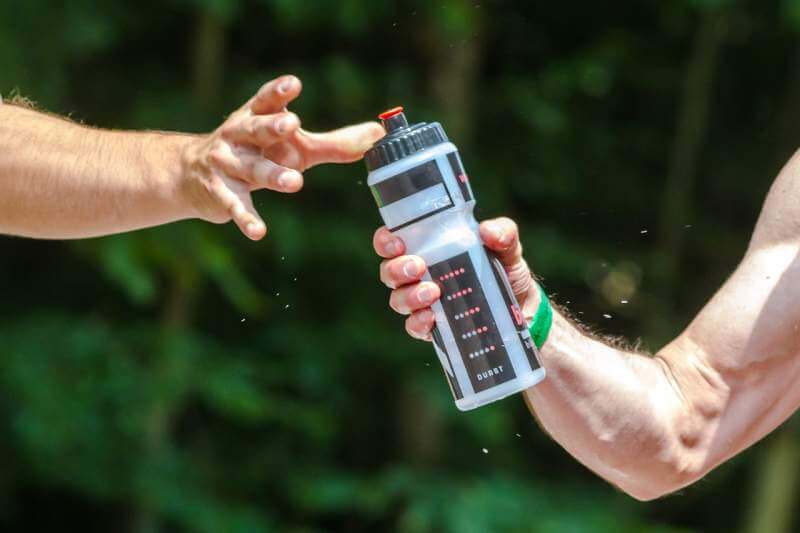Staying hydrated is an important thing that we can do for our body. In a world of coffee, soda, and Gatorade, it’s quite easy to forget drinking straight water. Some might justify it by saying that there’s enough water in the liquids they drink and that might suffice. As long as one’s not thirsty, why bother, right?
Guess what? You’re wrong. If you’re thirsty then you’re already dehydrated! But how much water does your body need a day? Well, that depends on many factors. The answer isn‘t as easy as saying eight glasses a day.
Here we’ll be discussing all the factors that have a role to play here so you can determine the right amount of water for you.
Factors that determine the amount of water you need daily

- The area you live in – Naturally, you‘ll need more water in hot, humid, and dry areas; and less if you live in a cold climate. You’ll also need more water to survive if you’re staying at high altitude.
- Your diet – The fluid requirement of your body depends on your food habit as well. If your diet mostly consists of salty, sugary or spicy foods, then you are likely to drink more water. On the other hand, if your diet contains a lot of water in itself; for example, if you eat a lot of watermelon or spinach, you won’t be thirsty much.
- Temperature and season – You’ll feel thirstier in summertime and less in winter. This is because our body sweats more in hot weather and less in winter. The weather, climatic, and temperature conditions of the region you’re in are important factors here.
- Environmental conditions – You’re likely to feel thirsty fast if you spend most of your time out in the sun. It’s the same if you spend more time in a heated room or in high temperature areas.
- Physical activities – If your daily activities involve a lot of bodily movements, you’ll surely get more dehydrated than someone who sits at a desk all day long. Physical exercises make you sweaty and to regain that lost amount of water, your body makes you thirsty.
- Health condition – Your need for water fluctuates depending on your health condition. If you’re suffering from fever or an infection, you might lose fluids through diarrhea or vomiting. To cover up the lost fluid, you’ll have to drink more. Health conditions like diabetes or bladder infections generally require an increased amount of fluid intake.
- Pregnancy or breastfeeding – Pregnant women need more water than usual to keep themselves as well as their unborn babies hydrated . The same is also true for breastfeeding mothers. Breast milk is about 90% water. So, if you’re breastfeeding your baby, you will get thirstier faster than normal.
How much water does your body actually need?
In short, your daily water intake depends on how much water your body releases and how much it uses in order to function properly. Your body responds according to its own needs and when there’s a need for water, you get thirsty.
In 24 hours, resting healthy adults usually regulate their water levels to within 0.2% of their body weight.
It is actually difficult to measure the lost amount of fluid in one’s body and calculate the right amount they need to drink every day.
The U.S. National Academies of Sciences, Engineering, and Medicine recommends the following:
- About 3.7 liters of fluids a day for men
- About 2.7 liters of fluids a day for women
This covers fluids from water, foods, and other beverages. About 20% of our daily fluid intake comes from foods and the rest from the liquids we drink.
How do you know if you’re drinking enough water?
Your daily intake of water is likely to be sufficient if –
- you don’t feel thirsty on a regular basis
- your urine is colorless or light yellow
If your body weight falls by 3% or more due to fluid loss, you’re dehydrated. Depending on the severity, dehydration could cause you to lose 3%-9% of your body weight.
In order to avoid dehydration and ensure that you’re drinking enough water, make water your favorite beverage. Also, don’t forget to keep water around you when outside e.g. keep a quality bike water bottle with you when cycling.
It’s safe to say that you’re having enough water if you drink –
- after each of your meals and between meals
- before, during, and after physical exercises
- whenever you feel thirsty
Can you drink too much water?
Drinking too much water is rarely a problem for an average healthy person. However, overhydration is seen as a problem in athletes and soldiers who drink too much during intense or long exercise sessions.
Overhydration is an imbalance of fluids in the body. It happens when your body holds onto more fluid than your kidney can remove. Overhydration can lead to water intoxication that could cause –
- Nausea
- Headaches
- Vomiting
Severe cases of water intoxication could have symptoms like –
- Increased blood pressure
- Drowsiness
- Cramping
- Double vision
- Confusion
- Difficulty in breathing
It’s difficult to drink too much water by accident. Yet it is possible and there have even been reports of deaths due to excessive water intake.
Summing it up
As you can see, there’s no fixed amount of water that could be suggested to all individuals since a lot of factors are at play here. No matter what, keep drinking enough water to let your body function well and stay healthy.
